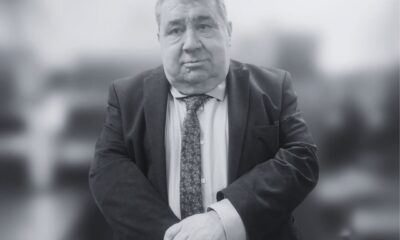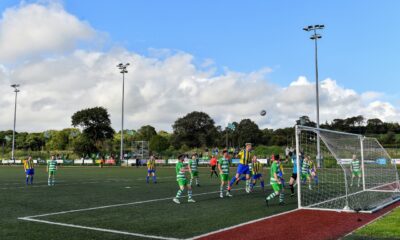News
Killarney again runner-up while Tralee is ‘clean’ in IBAL litter survey

The final litter survey of 2020 by business group Irish Business Against Litter (IBAL) shows Killarney in second place in the ranking of 37 towns and cities, with Tralee retaining its clean status in 17th. It is the second year in a row that Killarney has finished runner-up to Kilkenny, which took the crown for a record 5th time. For the first time in 13 years, fewer than half of the towns surveyed were deemed clean.
The An Taisce report for Killarney stated: “Always a top-ranking town, things were no different this time around in Killarney. It is a great credit to the local authority, traders and residents that the high standards of cleanliness have been maintained in these trying times. The Bottle Bank in the car park on Plunkett Street was exceptionally clean and freshly presented; Other top-ranking sites included Knockreer Playground and Deenagh Woodland Trail, High Street / Main Street and Dr Hans Liebherr Road. The Jarvey Parking and surrounds is beautifully laid out – it was also excellent with regard to litter.”
The An Taisce report for Tralee stated: “Tralee just hangs on to its clean status of last summer. Most of the town centre sites within were very much deserving of the top litter grade, including Tralee Town Park, Kerry County Museum, The Square / The Mall and Milk Market Lane – the latter was an excellent example of making a feature of a laneway. There was one litter blackspot - the ‘miscellaneous’ site along the residential Mitchels Road – it wasn’t just casually littered but subject to heavy levels of dumping – it didn’t get into this state overnight. The Clothing Bank to the rear of SuperValu had significant amounts of clothing discarded to the rear of the clothing units.“
In all, litter levels rose in 24 of the 37 towns and cities inspected by An Taisce at the end of 2020, resulting in only 17 being judged to be clean – a fall of over 25% on last summer and in sharp contrast to just three years ago, when 80% were clean.
According to IBAL, the survey results are consistent with a trend in recent years. “The decline in cleanliness is less a case of the poorer areas getting worse, but of previously clean towns slipping to littered,” says IBAL spokesperson Conor Horgan. “COVID is clearly a factor here, but we should never accept litter as inevitable. It comes down to people disposing of their waste without regard for their surroundings or their fellow citizens and it is entirely unnecessary.”
One explanation for the rise in litter lies in the restrictions surrounding cleaning services during the pandemic. “While council workers have not been on the streets as much as normal, the general public has been spending more time than ever out of doors,” says Mr Horgan.
“There was a sharp rise in the amounts of litter on approach roads to towns, reflecting the fact that the benign winter has seen masses of people out walking. Ironically, too many of them are showing a shameful disregard for the environment they are enjoying.”
PPE litter
Coffee cups were among the most prevalent litter types found, while there was another rise in glass bottles and cans, suggesting that outdoor drinking has not waned over the winter months. The survey also showed that the second half of 2020 brought a further increase in PPE-related litter, primarily masks. “Eight months into the pandemic, we would have hoped people would have moved to reusable masks with a resulting fall in mask-related litter. In fact, we are seeing more and more of them ending up our streets.”
Heavily littered sites ‘getting worse’
The report highlighted a continued rise in the number of blackspots in towns and cities. IBAL was once again critical of the failure of local authorities to address sites that had been identified in previous surveys as heavily littered. 36 such sites were revisited in this latest survey, yet only 11% were found to have been cleaned up and more than a quarter had actually worsened.
Reluctance to pick up litter
According to IBAL, the reluctance among civic-minded people to pick up litter during the pandemic may carry long term consequences.
“While people have certainly become more attuned to their natural surroundings and more conscious of how litter can spoil those surroundings, this is offset by an understandable unwillingness to pick up waste for fear of contamination. As the pandemic endures, and with it the sensitivity around touching items, people may simply get out of the habit of picking up other people’s litter. We risk losing a civic behaviour which is vital in keeping our country clean.”























